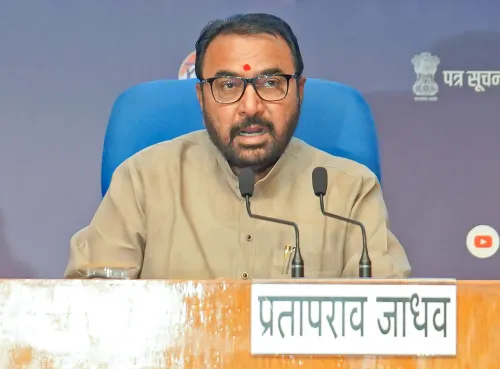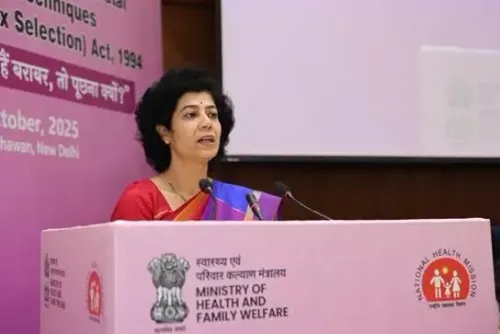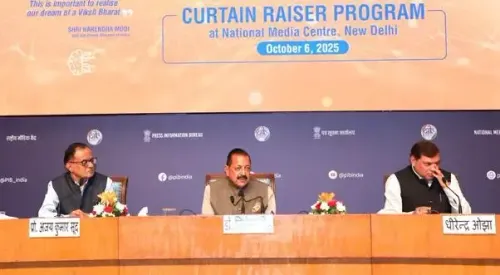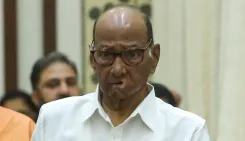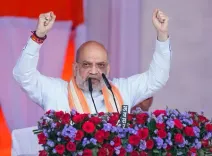Did Trump Just Demand Price Cuts from 17 Major Drug Companies?
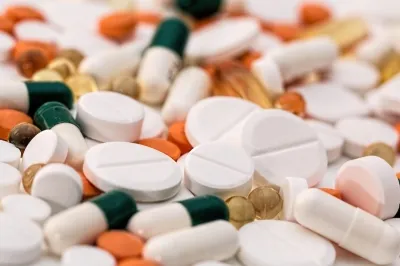
Synopsis
Key Takeaways
- Trump's letter demands price reductions from 17 major drug companies.
- The Nifty Pharma index fell 2.45%, impacting Indian stocks.
- Companies have 60 days to comply with the pricing demand.
- Potential repercussions may affect Indian exporters of generics.
- Americans pay significantly more for brand-name drugs compared to other nations.
Mumbai, Aug 1 (NationPress) A communication from U.S. President Donald Trump has prompted 17 international pharmaceutical companies to reduce their pricing in the United States, leading to significant financial setbacks for these firms as the repercussions were felt in the Indian stock market as well.
The correspondence emphasized the necessity for these corporations to align their drug prices in the U.S. with those found in other developed nations.
Although no Indian pharmaceutical firms received Trump's letters, the Nifty Pharma index experienced a notable decline, dropping by 2.45 percent during the intra-day trading on Friday.
This marks the index's third consecutive day of losses. Sun Pharmaceutical Industries Ltd saw a decrease of 3.98 percent, while Aurobindo Pharma fell by 3.42 percent and Granules India by 3.2 percent. Gland Pharma, Cipla, and Lupin also witnessed declines ranging between 2 to 3 percent.
In his letter, Trump urged 17 of the world's leading pharmaceutical companies to take immediate action in reducing drug prices, ensuring that forthcoming medications will be priced comparably to those in other regions.
The correspondence was directed to Eli Lilly, Novo Nordisk, Pfizer, among others, requesting 'Most Favoured Nation' (MFN) pricing for the U.S. within a 60-day timeframe.
White House Press Secretary Karoline Leavitt stated that recent statistics revealed that Americans are paying more than three times what individuals in other developed countries pay for brand-name drugs.
Previously, on May 12, Trump made a similar declaration, urging pharmaceutical companies to lower prices in the U.S. Industry insiders in India suggested that Trump's proposal could adversely affect Indian exporters of branded generics to the U.S., especially since generic medications are already priced low. Further reductions in price may render shipping unfeasible, they noted. Approximately one-third of India's annual pharmaceutical exports, valued at $30 billion, are directed towards the U.S. market.
In his letter, Trump granted pharmaceutical companies 60 days to voluntarily adhere to the new pricing mandate. Should they fail to comply, he warned that the U.S. would utilize 'every tool in our arsenal' to safeguard Americans from continued 'unjust drug pricing' practices.
Trump's correspondence mandated that companies sell specific drugs directly to consumers at prices equivalent to those offered to third-party insurers.

